A bourgeois reformist thinker
Overview
Chinese Name: 胡适
English Name: Hu Shih
Other Names: Hu Sitao 胡嗣穈,Hu Hongxing 胡洪骍,Hu Xijiang 胡希疆
Born: December 17, 1891
Died: February 24, 1962
Achievements:
The leader of New Culture Movement 新文化运动领袖
Create the history of Chinese Philosophy 开创中国哲学史
Research and establish the New Youth 研究创办新青年
Advocate vernacular 提倡白话文
Main Works:
The collection of attempts 尝试集
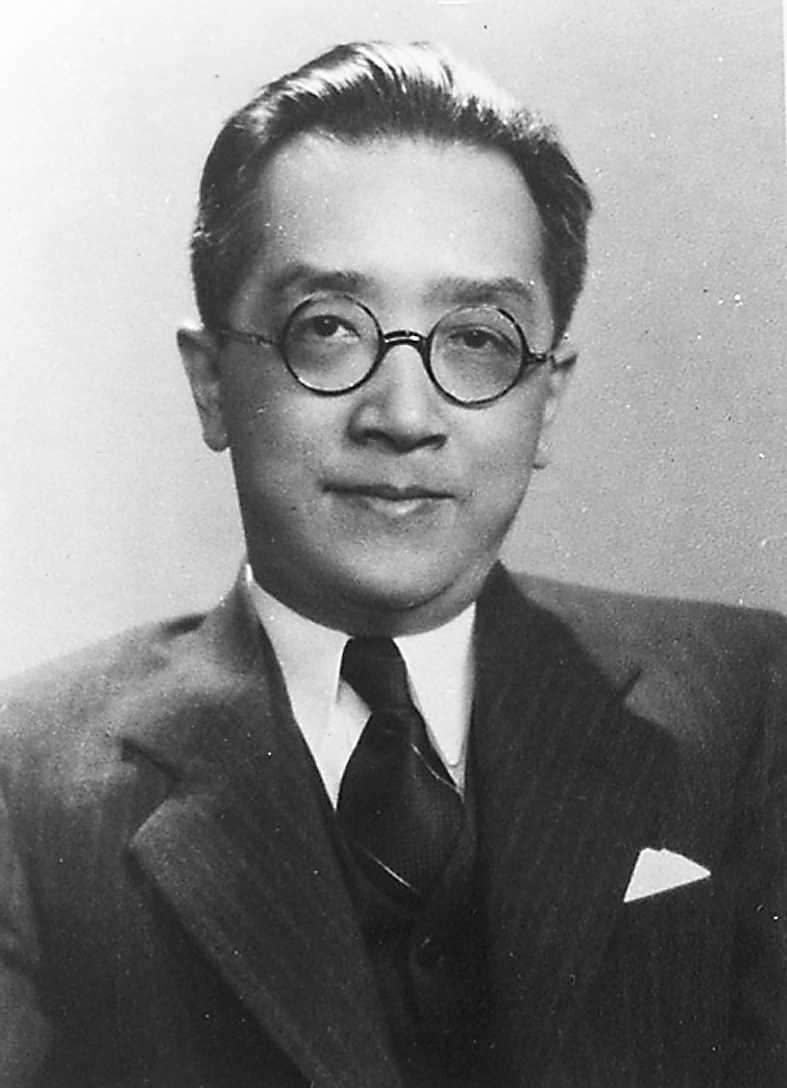
Brief Biography of Hu Shih
Hu Shih was born in Chuansha County 川沙县, Songjiang Prefecture 松江府, Jiangsu Province 江苏省 (now Pudong New Area 浦东新区, Shanghai 上海). He is a modern Chinese thinker, writer and philosopher.
Hu Shih (December 17, 1891 – February 24, 1962), courtesy name Xijiang 希疆, scientific name Hongxing 洪骍, changed his name to Shi 适. His native place is Jixi County 绩溪县, Anhui Province 安徽省.
In the second year of Xuantong 宣统 (1910), he went to Cornell University 康奈尔大学 in the United States to study under the philosopher John Dewey. In the 6th year of the Republic of China (1917), he returned to China and was employed as a professor of Peking University 北京大学. In the 7th year of the Republic of China (1918), he joined the editorial department of New Youth 新青年.
In the 8th year of the Republic of China (1919), he published the treatise outline of the history of Chinese philosophy 中国哲学史大纲. In February of the ninth year of the Republic of China (1920), he published the collection of vernacular poems, the collection of attempts 尝试集. In the 11th year of the Republic of China (1922), he served as the editor of Sinology quarterly 国学季刊 and founded the effort weekly 努力周报.
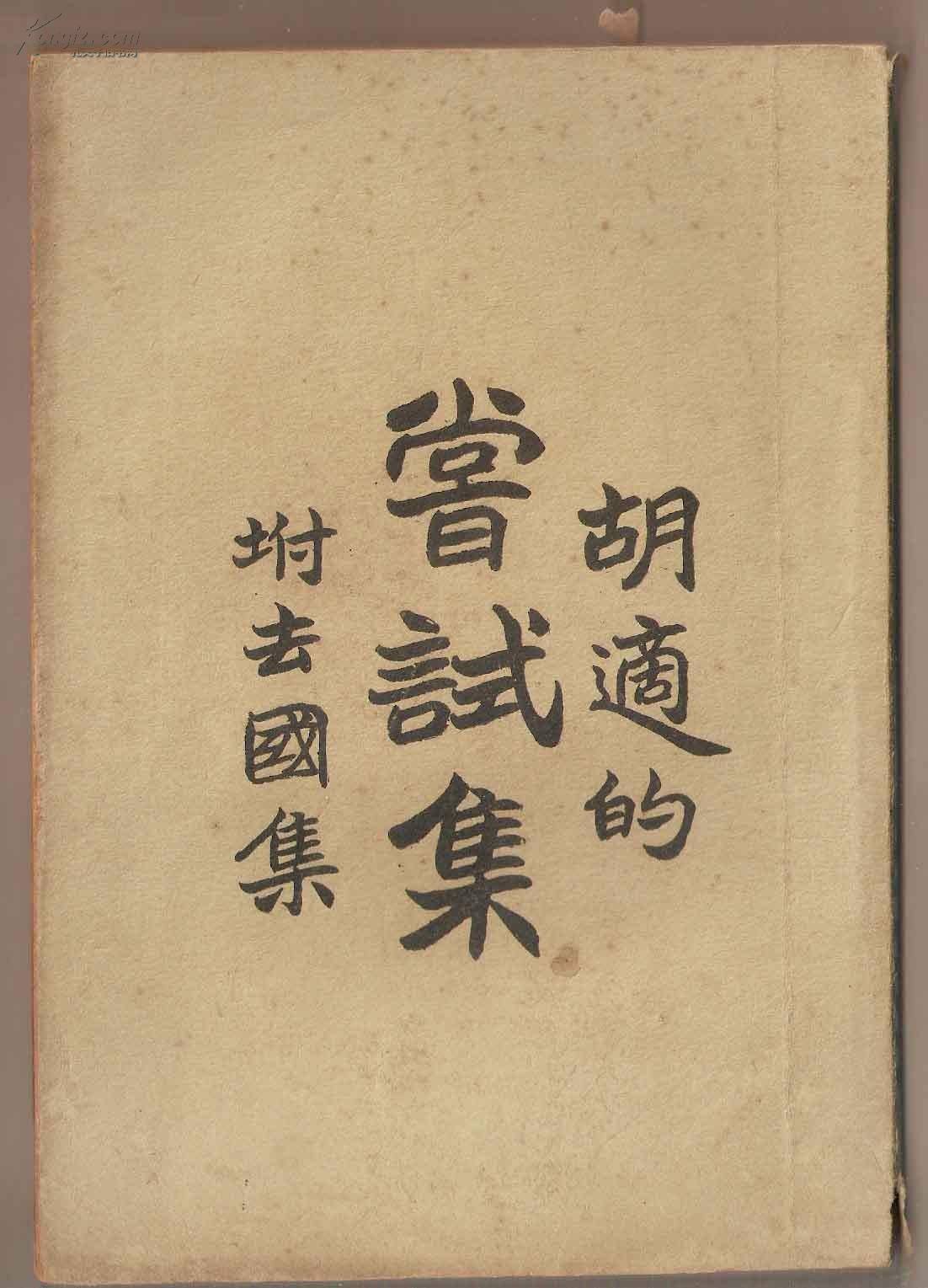
In the 17th year of the Republic of China (1928), he published the history of vernacular literature 白话文学史. In the 21st year of the Republic of China (1932), he was employed as a member of the national finance committee and founded the independent review 独立评论 magazine. In the 22nd year of the Republic of China (1933), he was employed as a member of the rural reconstruction Committee. In the 27th year of the Republic of China (1938), he was elected as a member of the National Political Council 国民参政会.
From the 27th to 31st year of the Republic of China (1938-1942), he served as ambassador to the United States. On April 25, 1945, he attended the San Francisco Conference 旧金山会议. From the 35th to the 37th year of the Republic of China (1946-1948), he was the president of Peking University.
In 1949, he went to the United States. In 1952, he served as a member of the Editorial Committee of the world history of human science and culture of UNESCO; In the same year, he was invited to give lectures in Taiwan 台湾. In 1957, he was appointed president of the “Academia Sinica”.
On February 24, 1962, he died of illness in Taipei 台北.
Personal Life and Major Contributions
A famous scholar
On March 21, the 11th year of the Republic of China (1922), the editorial department of Sinology quarterly 国学季刊 was established and served as the editor of the magazine; On May 7, he participated in the founding of effort weekly 努力周报; On May 14, “our political proposition 我们的政治主张” drafted by Hu Shih was published in No. 2 of the “effort weekly”
On September 25, he attended the academic system meeting convened by the Ministry of education; On October 11, he participated in the 8th National Education Federation meeting held in Jinan 济南 as a representative of Beijing Education Association. During the meeting, he was pushed to draft the academic system, which was promulgated and implemented by the Presidential Decree.
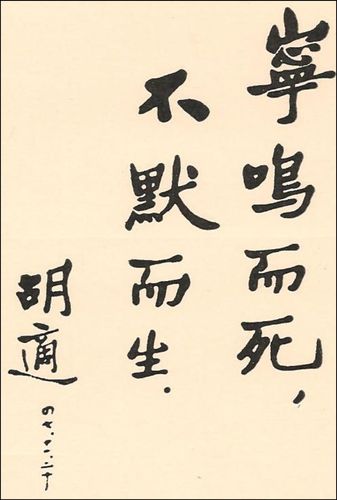
On July 3, the 13th year of the Republic of China (1924), he wrote to Zhang Guogan 张国淦, director general of education of the Beiyang government, asking questions about the ban on the sale of Hu Shih Wencun 胡适文存 and Du Xiu Wencun 独秀文存 by Beijing police; In the same year, he founded modern review 现代评论 weekly with Chen Xiying 陈西滢 and Wang Shijie 王世杰.
In January of the 14th year of the Republic of China (1925), he participated in the “aftermath committee 善后委员会”; On February 13, the promotion meeting of the national assembly from all walks of life in Beijing informed Hu Shih that he was recommended as a member of the Research Committee on the organizational law of the national assembly; In April, he was employed as a philosophy consultant by the all China village and City Construction Association.
Seek ways to save China
On January 12, the 21st year of the Republic of China (1932), Lin Sen 林森 issued a letter of appointment in the name of the national government and appointed Hu Shih as a member of the National Finance Committee; On January 23, Hu was reappointed to attend the national disaster Conference; On May 22, Jiang Tingfu 蒋廷黻, Ding Wenjiang 丁文江, Fu Sinian 傅斯年 and Weng Wenhao 翁文灏 were invited to establish independent review 独立评论 magazine, and a total of 1309 articles were written for it.
On June 2, the German Prussian National Academy 德国普鲁士国家学院 wrote to hire Hu Shih as the communication member of the philosophy and History Department of the Academy; On July 3, he published an essay entitled “to this year’s college graduates” on independent review No. 7, advocating “Pasteur spirit 巴斯德精神”.
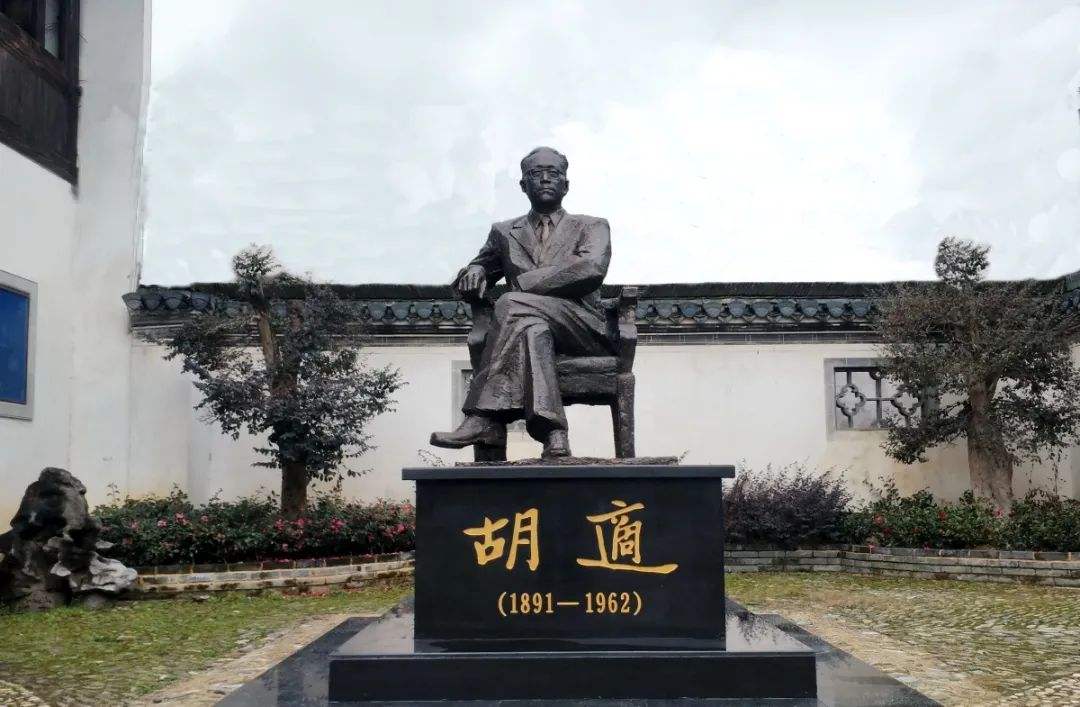
On July 10, he published the so-called Fascism of education 所谓教育的法西斯蒂化 in independent review No. 8; On November 28, he was employed by the National Economic Commission as a member of the Special Education Committee of the Commission; On December 6, he gave a speech at the Sun Yat-Sen 孙中山 Memorial Hall in Changsha, advocating “saving the country by learning 学术救国”; In the same year, he served as Dean of the school of literature and director of the Department of Chinese literature of Peking University.
Years as ambassador to the United States
In June of the 27th year of the Republic of China (1938), he was elected as a member of the “National Political Council”; In July, he served as ambassador to the United States; On September 17, he was officially appointed ambassador to the United States by the national government; On October 27, he submitted his credentials to President Roosevelt of the United States.
On December 4, he gave a speech on “the war of independence in North America and the war of resistance against Japan in China” at the New York Law Club, and for the first time openly put forward the concept of “struggling for change 苦撑待变”.
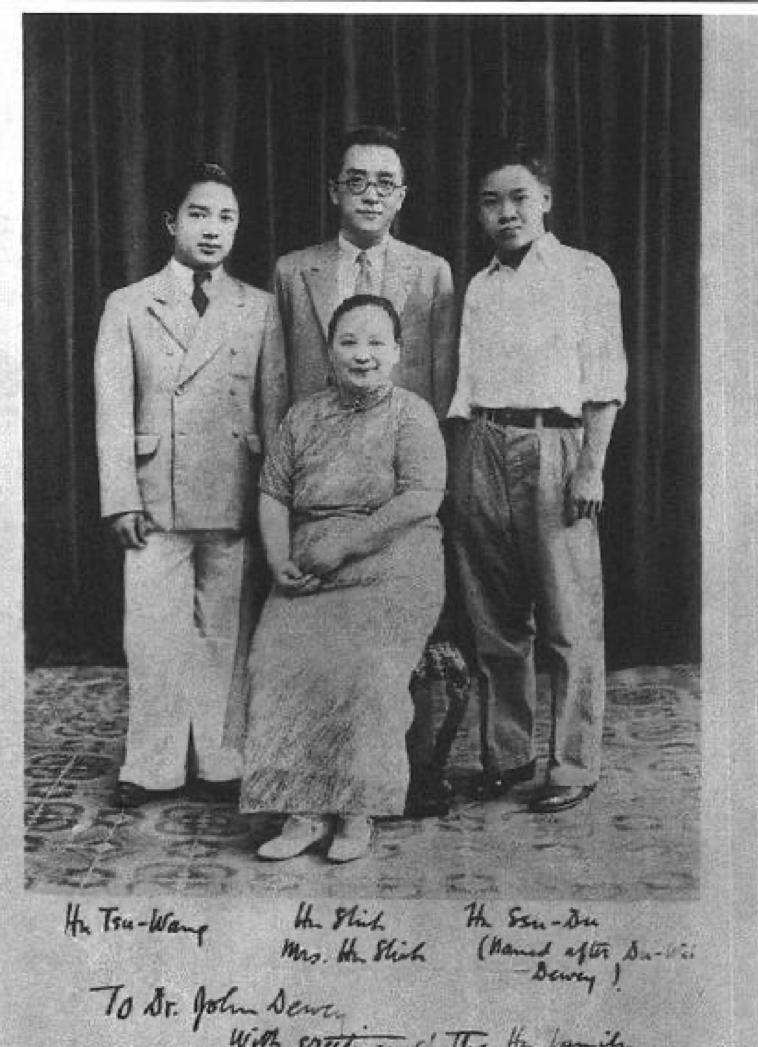
On April 19, the 28th year of the Republic of China (1939), he went to the United States to visit president Roosevelt and talk about the legislation; On June 6, he accepted the honorary doctor of law degree of Columbia University.
On November 10, 1941, he visited US president Franklin Roosevelt to discuss the situation in the Far East.






